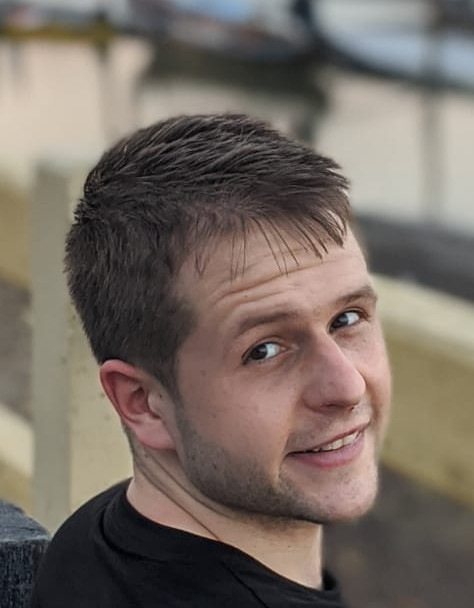

I have left the Knowledge and Data Engineering Group on 31.10.2023. I am now working at the Information Systems and Machine Learning Lab of the University of Hildesheim. My new homepage is available here.
Email: stubbemann@cs.uni-kassel.de
Publications
- URLBibTeXEndNoteThe Mont Blanc of Twitter: Identifying Hierarchies of Outstanding Peaks in Social Networks. In: European Conference on Machine Learning and Principles and Practice of Knowledge Discovery in Databases, ECML-PKDD 2023. pp. 177–192. Springer (2023). https://doi.org/10.1007/978-3-031-43418-1\_11.
- URLBibTeXEndNoteOrometric Methods in Bounded Metric Data. In: Berthold, M.R., Feelders, A., and Krempl, G. (eds.) Advances in Intelligent Data Analysis {XVIII} - 18th International Symposium on Intelligent Data Analysis, {IDA} 2020, Konstanz, Germany, April 27-29, 2020, Proceedings. pp. 496–508. Springer (2020). https://doi.org/10.1007/978-3-030-44584-3\_39.
Talks
- September 2023: The Mont Blanc of Twitter: Identifying Hierarchies of Outstanding Peaks in Social Networks, ECML/PKDD 2023
- September 2023: Intrinsic Dimensionality and Graph Learning, ISI Foundation Turin
- January 2023: Topological Data Analysis and Neural Networks, Dagstuhl Workshop on Concept Lattice Based Topological Data Analysis and Reasoning
- April 2022: LG4AV: Combining Language Models and Graph Neural Networks for Author Verification, Symposium on Intelligent Data Analysis 2022
- July 2021: Dimensionen von Nähe und ihr Einfluss auf die Entstehung von Kollaboration, ITeG Brown Bag Seminar
- April 2020: Orometric Methods in Bounded Metric Data, Symposium on Intelligent Data Analysis 2020
Research Communication
- Podcast of the University of Kassel: How does ChatGpt work? (In German)
- Participation in a radio report on ChatGPT on the Hessian radio station HR4, broadcast on 23.03.2023 at 11:15 a.m.
- Inteview for the local magazine „Mein Kassel“ (in German) :
Current state and future of language models and their implications four our lives. - External Lecturer at the Departement of Empirical Research on Schools and Teaching:
ChatGPT et al. : Functionality, History and Consequences for Teaching (in German)
Reviewing
- Subreviewer: European Conference on Machine Learning and Principles and Practice of Knowledge Discovery in Databases, September 19-23 2022
- Subreviewer: 20th International Semantic Web Conference, October 24-28 2021, Virtual Conference
- Subreviewer: 18th Extended Semantic Web Conference, June 6-10 2021, Hersonissos, Greece
- Subreviewer: 19th International Semantic Web Conference, November 1-6 2020, Virtual Conference
- Subreviewer: 25th International Conference on Conceptual Structures, September 18-21 2020, Bolzano, Italy
- Subreviewer: 24th European Conference on Artificial Intelligence, June 8-12 2020, Santiago de Compostela, Spain
- Subreviewer: 25th ACM SIGKDD Conference on Knowledge Discovery and Data Mining, August 4 – 8, 2019, Anchorage, Alaska – USA
- Subreviewer: 15th International Conference on Formal Concept Analysis, June 25-28 2019 – Frankfurt, Germany
Projects
REGIO (2018-2021)
REGIO was a joint project between the University of Kassel, the L3S Research Center Hannover, the HU Berlin and the University of Würzburg. Together, we established new methodologies and data sources which helped to better understand the impact of geographic and thematic proximity on the genesis and the success of interaction in science and R&D. Our findings indicate, that social and thematic proximity are the key factors for cooperation.
Dimension Curse Detector (2022-)
This project is led by Dr. Tom Hanika within the Loewe Exploration program. In this project, we investigate to which extent machine learning is influenced by the intrinsic dimensionality of data. For this, we quantify the Curse of Dimensionality which is strongly connected to the phenomenon of measure concentration. Within the project, we develop methods that allow to efficiently compute the intrinsic dimension of modern large-scale datasets.
Teaching
Together with Johannes Hirth, I developed a Clojure programming curse which first took place in summer 2019. The course is hold until today on a regular basis.
Wintersemester 2022
Sommersemester 2021
Wintersemester 2021
Sommersemester 2020
Winter 2019/20
Summer 2019
Winter 2018/2019